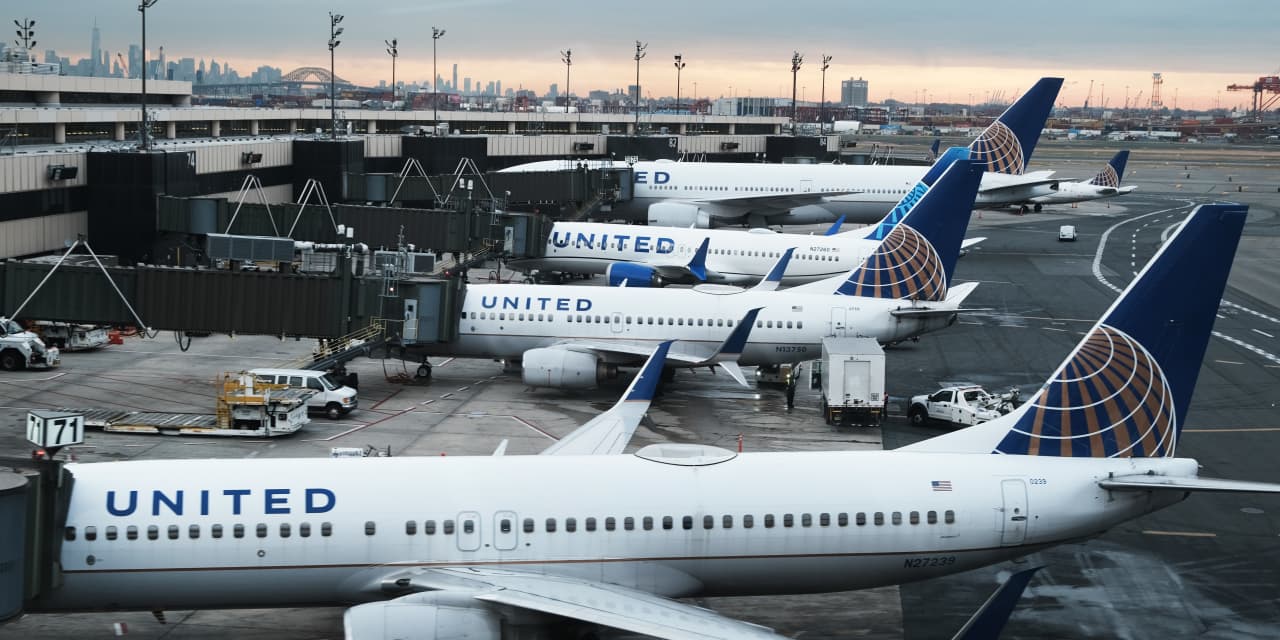Airline stocks were slumping Tuesday as the sector’s laundry list of risks kept investors cautious.
After the sector’s sharp selloff Friday, there were little signs of a rebound ahead of the open Tuesday as shares of most major U.S. airlines pointed lower.
Delta Air Lines,
United Airlines Holdings
and
American Airlines Group
all fell 9% to 10% Friday after the former’s 2024 outlook highlighted the cost and margin pressures facing the industry.
Delta’s long-term target of annual earnings per share of more than $7 was replaced with guidance of $6 to $7. It was in line with Wall Street expectations but the market treated the reduced outlook as something of a symbol that 2024 could be a turbulent one. A spike in oil prices added to the negative sentiment.
The 6,000-plus flight cancellations Saturday through Monday as subzero temperatures and heavy snow swept across large parts of the U.S. aren’t going to help first-quarter earnings expectations, either.
There’s also the issue of the Boeing 737 MAX 9 grounding. It’s no coincidence that the two carriers most exposed to the aircraft—United Airlines and
Alaska Air
—were among the worst hit stocks early Tuesday. United was 2.2% lower, and Alaska had fallen 3%, though
Delta Air Lines
was off 3.4%.
The Federal Aviation Administration further extended the MAX 9 grounding Friday and said it needs more data before allowing the aircraft to return to the skies. That means more cancellations for United and Alaska.
Alaska has canceled 22% of its scheduled flights between Jan.6, the day after the emergency incident onboard one of its aircraft, and Monday, according to data from flight-tracker FlightAware. United has canceled 9% over the same period. Those percentages roughly tally with the proportion of MAX 9 jets the airlines have in their fleets.
Investors will be closely watching for how damaging the impact could be when the two carriers report earnings next week. The timing of the grounding may be in their favor as the beginning of January is a quiet period for air travel. Therefore, they may have been able to squeeze passengers onto other less-than-full flights to minimize the impact.
When asked if Delta has benefited from increased bookings as a result of United and Alaska’s issues, the carrier’s President Glen Hauenstein said there’s been a “small uptick” specifically in Seattle, but stressed it was “minimal in the grander scheme of things.”
The Delta-led selloff may have been overdone Friday but the sector doesn’t look ready to bounce back yet.
Write to Callum Keown at [email protected]
Read the full article here




